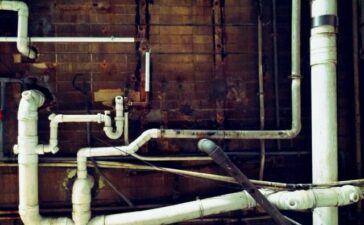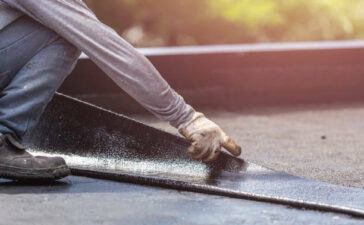Buying a home is one of the most important decisions you will ever make in your life. It’s also a very complex process that can be fraught with peril if you’re not prepared. That’s why it’s important to arm yourself with as much information as possible before you even start looking for houses. In this article, we will provide some useful advice that first-time home buyers should pay attention to.
Funding Your First Home
One of the most important things to consider when buying a home is how you will finance it. Unless you have a large amount of cash saved up, you will likely need to get a mortgage. This is a loan that is secured against the value of your property and can be obtained from a bank or other financial institution. You can consult with the Kansas City mortgage lender to go through the first steps you need to take. The first step is to get pre-approved for a mortgage so that you know how much money you have to work with. Once you have found a property that you like, the next step is to apply for a mortgage. The lender will then assess your application and decide whether or not to approve it.
- The deposit is another important factor to consider when financing your first home. In most cases, you will need to put down a deposit of at least 10% of the purchase price. This is money that you will need to have saved up in advance and is paid to the seller when you exchange contracts. The deposit is usually held in escrow until the sale is completed.
Closing Costs
When buying a home, there are a number of additional costs that you need to be aware of. These are often referred to as closing costs and can add up to several thousand dollars. Some of the most common closing costs include:
- Appraisal fee: This is a fee charged by the lender in order to assess the value of the property.
- Credit report: The lender will run a credit check on you in order to determine your creditworthiness.
- Origination fee: This is a fee that is charged by the lender for processing your mortgage application.
- Discount points: These are fees that you can choose to pay in order to get a lower interest rate on your mortgage.
- Private mortgage insurance: If you are putting down less than 20% of the purchase price, you will likely be required to take out private mortgage insurance (PMI). This is an insurance policy that protects the lender in case you default on your loan.
- Taxes and insurance: You will also be responsible for paying property taxes and homeowner’s insurance.
Closing costs can vary depending on the lender, the property, and the state that you live in. It’s important to factor these costs into your budget so that you don’t end up being surprised when it comes time to close on your home.
Home Inspections
Before you buy a home, it’s important to have it inspected by a professional. This will give you an idea of any potential problems that need to be fixed. Most buyers choose to get a general home inspection as well as a separate inspection for things like the roof, foundation, and HVAC system. These inspections can cost several hundred dollars but they are worth it in order to avoid any nasty surprises down the road.
Working with a Realtor
When you’re ready to start looking for homes, it’s a good idea to work with a real estate agent. They will be able to help you find properties that meet your needs and budget. Realtors also have a lot of experience with the home buying process and can help you navigate through it.
Turnkey or Fixer-Upper?
One of the first decisions you need to make when buying a home is whether you want a turnkey property or a fixer-upper. A turnkey property is one that is move-in ready and doesn’t require any work. This is usually more expensive but it can save you a lot of time and hassle. A fixer-upper, on the other hand, is a property that needs some work. This can be anything from cosmetic updates to major renovations. Fixer-uppers are often much cheaper but they will require some time and effort to get into shape.
These are some important factors to consider when you are a first-time home buyer. Be sure to get pre-approved for a mortgage, factor in closing costs, and have your home inspected before making an offer. Working with a real estate agent can also be helpful. And finally, decide whether you want a turnkey property or a fixer-upper. With these tips in mind, you’ll be on your way to finding your perfect home.






